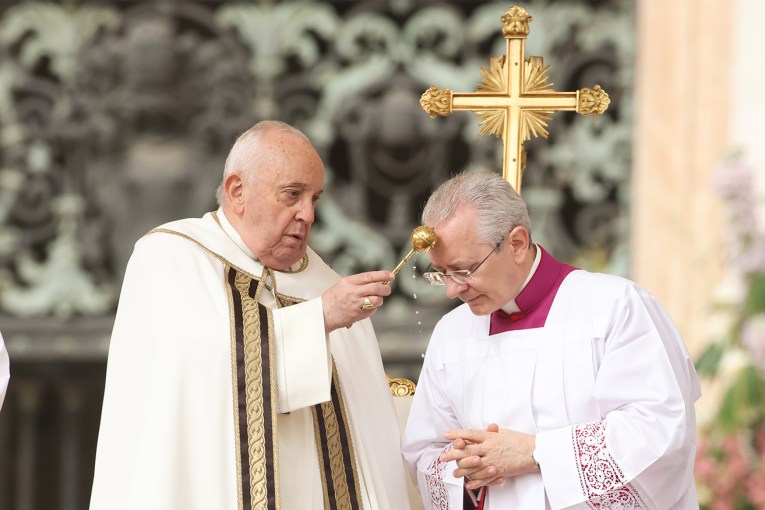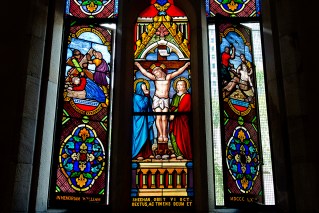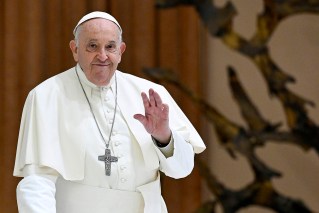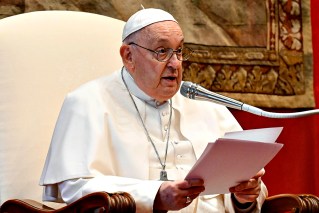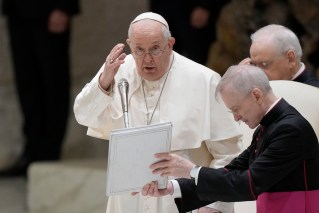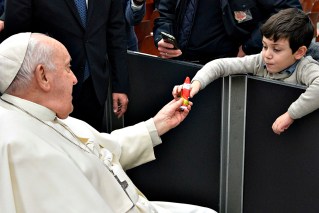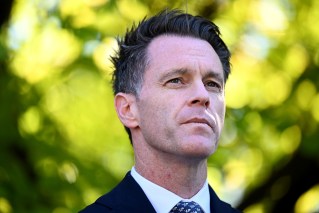Honouring exiled ancestors and Chinese tradition on Christmas Island
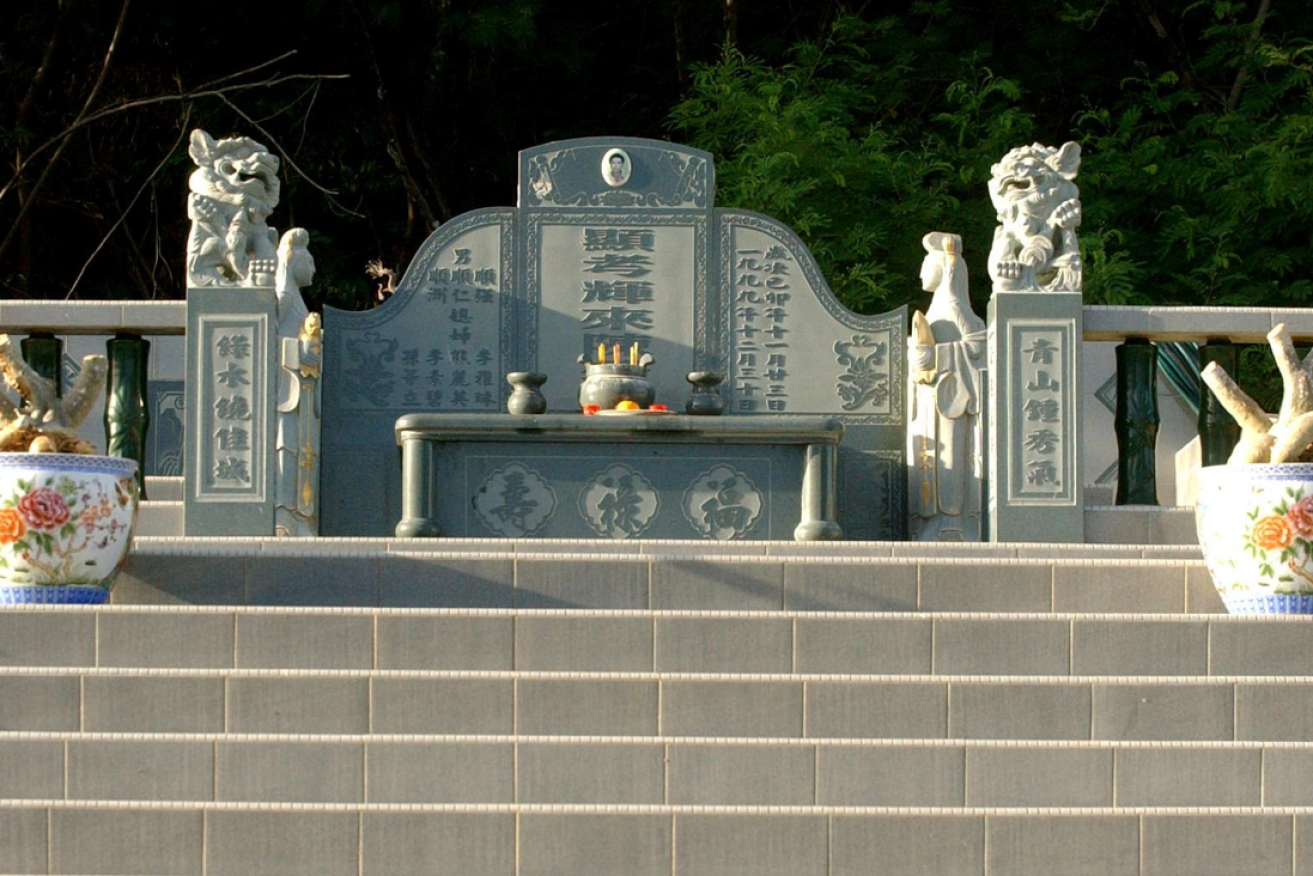
The Chinese phosphate miners who flocked to Christmas Island are long gone but their honoured legacy lives on. Photo: AAP
As a young girl growing up on Christmas Island, Sim Seet remembers her mother taking her to visit her grandmother’s grave every April.
The Chinese cemetery, one of two on the external Australian territory, purposely overlooks the Indian Ocean.
Although she never met her maternal grandmother, Ms Seet, a fourth-generation islander, still feels her spirit close by and this makes her teary.
“I haven’t seen her before but I miss her,” she tells AAP, standing beside the headstone of her family matriarch. “I feel very close to her when I come here.”
Yet this is a place for other emotions too.
The otherwise cheerful local, who has worked as a cleaner at the island’s only hospital for more than 20 years, quickly shrugs off her sorrow to recall her antics as a visiting child.
“When I was four years old, I was naughty and I used to sit on top (of the grave) and my mum would tell me off, saying, ‘No, you can’t sit there, your grandfather is buried there’,” she says while strolling among the plots.
“I didn’t understand, I was so small.”
Observed on April 5, the festival of Qingming (Tomb Sweeping day) is when the Chinese clean ancestors’ graves and nourish their spirits with elaborate meals. The practice dates back some 2500 years.
Honouring the forebears
They also burn incense and spread small paper money as a sign of honouring their forebears and to ensure they meet in the afterlife.
Ms Seet’s great-grandparents came to Christmas Island from China via Singapore as part of a migration wave prompted by a phosphate mining rush in the early 19th century.
She is the only member of her family still on the island and carries on the fading Qingming tradition, while also generally tending to her grandparents’ graves from time to time, removing overgrown shrubbery and gathered leaves.
Museum curator and author Helene Bartleson has extensively mapped the island’s Chinese cemeteries and describes them as unique in their melding of nature and culture as a “singular spiritual heritage.”
“If you go to China, you won’t find cemeteries like these anymore,” she says.
The fourth century Book of Burial by Taoist mystic Guo Pu was instrumental in how Chinese residents of the island, mostly miners, were buried based on fengshui principles, Ms Bartleson explains.
Along with the numerous Taoist temples and shrines on the island, the cemeteries were built on high ground, a cliff with uninterrupted views of the ocean.
“The natural topographical features of Christmas Island are so in line with the description (in the book) of the ideal place to site a cemetery and then, to site individual graves within that cemetery, that the island has two of them,” she says.
Hungmen Brotherhood
One is the Phosphate Hill cemetery where a secret workers’ fraternity called the Hungmen Brotherhood, or the Heaven and Earth Society, were custodians of the burial process.
High near the phosphate quarry, the brothers laid the dead to rest with simple headstones.
The other, the Settlement Chinese Cemetery, is in the main part of town where Ms Seet pays her respects. It was originally established to serve the needs of the island’s hospital and has more ornate graves in the shape of red brick armchairs.
“Whether they were in the goldfields in California or New Zealand, or the tin mines of Borneo … or on Christmas Island mining phosphate, wherever you were in the world as a Chinese person, your wish was for the remains to be sent back to the place where they came from,” Ms Bartleson says.
Because it was so expensive and laborious to fulfil that wish, the brothers honoured those buried by erecting headstones that had their biographical details etched on them so they would be remembered by future generations.
“The cemeteries are a time capsule of this island’s story, of real cultural and spiritual beliefs that haven’t been watered down,” Ms Bartleson says.
“They are largely untouched.”
-AAP
